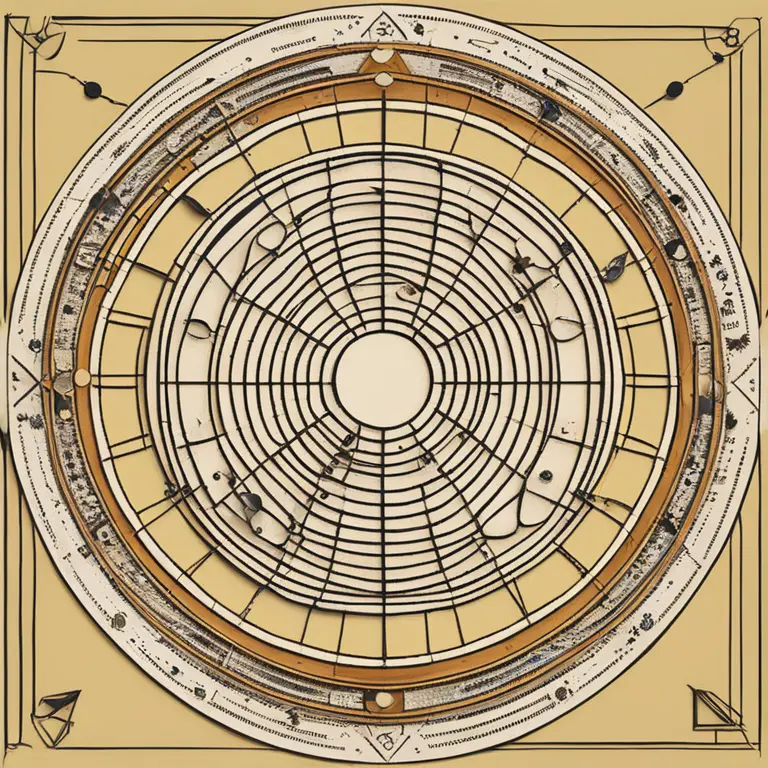
The Dynamics of Astrological Houses and Ruling Planets
Delve into the foundational elements of astrology by understanding the significance of astrological houses and their planetary rulers within a birth chart.
article by Priya Deshmukh
Astrology's Architectural Blueprint
Astrological houses represent distinct areas of life, with each house concerned with different aspects of our existence. Like rooms within a house, these divisions shape the overall structure of a birth chart. The concept of the astrological houses can be likened to the foundation upon which astrology is built, laying out the terrain for potential experiences, personal growth, relationships, and life's pivotal events. By examining the houses, we gain insights into where in life these events and characteristics manifest.

The Twelve Houses and Life Sectors
Each astrological chart is divided into twelve houses, and every house is linked to a set of traits and life sectors. The First House begins with the Ascendant or rising sign and relates to self-identity and personal approach to life. Successively, the houses cover everything from finances, communication, home and family all the way to aspirations, subconscious patterns, and the connection to the divine or universal consciousness. Their meanings remain relatively fixed, providing a guide to understanding individual experiences through their planetary placements.

The Role of Planetary Rulers
Planetary rulership adds a dynamic layer to the houses in astrology. Each house is ruled by a planet—be it a traditional or modern ruler—that influences the realm of life that house covers. For instance, Mars rules over the assertive First House, while Venus oversees the harmonious Seventh House of partnerships. Understanding the rulers of the houses helps in interpreting how an individual might express the traits associated with that house, as well as potential strengths and challenges.

Connecting Dots: Planets, Signs, and Houses
It’s not just about which house falls in which sign—each planet residing in a house brings its own energy to that area of life. When analyzing a chart, astrologers look at the natal positions as well as the current transits, which are the planets' current locations in the sky. For example, Jupiter transiting through someone's Second House could mean a beneficial period for finances or self-worth, especially if the transition happens in 2024 or later, when the optimistic energies of Jupiter encourage expansion and growth.
The Influence of House Rulers
In a birth chart, the planet ruling the sign on the cusp of each house is considered the house's 'lord'. This house lord carries significant sway over the matters of its house. If the ruler of the Tenth House, which is related to career and public status, is posited in the Sixth House, one's profession could be deeply connected to service and health. This influence would be particularly noticeable in the coming years, as societal values are expected to continue evolving rapidly.
Practical Implications for Everyday Life
For practical purposes, past knowledge combined with contemporary astrological trends guide astrologers in advising clients. Given the energetic shifts posed by upcoming celestial events, a focus on sustainability and technological advancement might reflect in the Eleventh House of community and future planning. Integrating the awareness of houses and rulers in personal readings can empower individuals to make informed decisions and navigate the opportunities and challenges that lie ahead.
Published: 2/13/2024
Modified: 2/13/2024
More predictions
Come back here soon to learn more about yourself and your future


Astrology and the Young Stars: A Kid-Friendly Guide
Delve into a kid-friendly introduction to astrology, unveiling the cosmic influence on our little ones' personalities, strengths, and potential paths.


Can Astrology Predict Life's End?
Delve into the contentious debate around astrology's ability to foresee an individual's demise. This article sheds light on the arguments and beliefs within this ancient practice.


Astrological Planetary Positions Today
Discover the current role of astrological bodies in influencing our daily lives with today's planetary alignments.